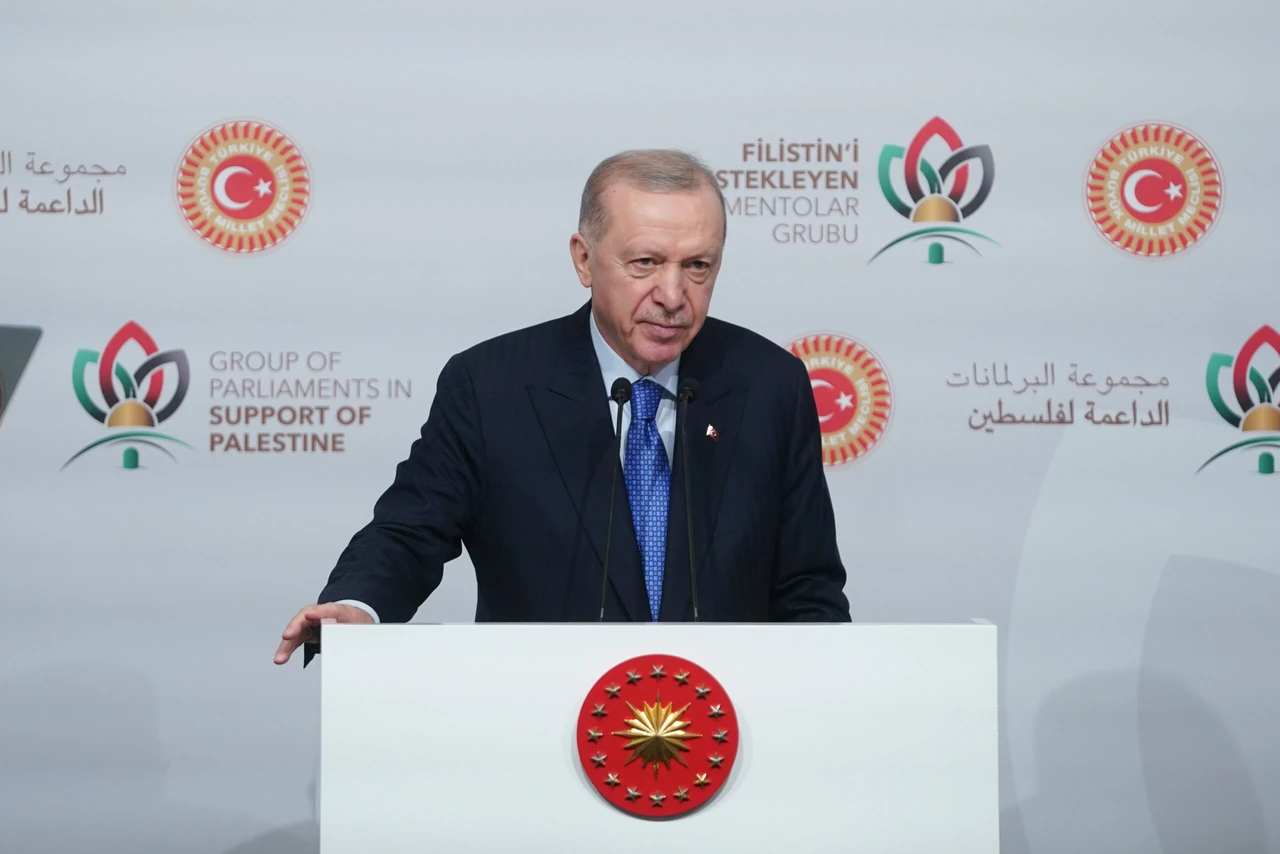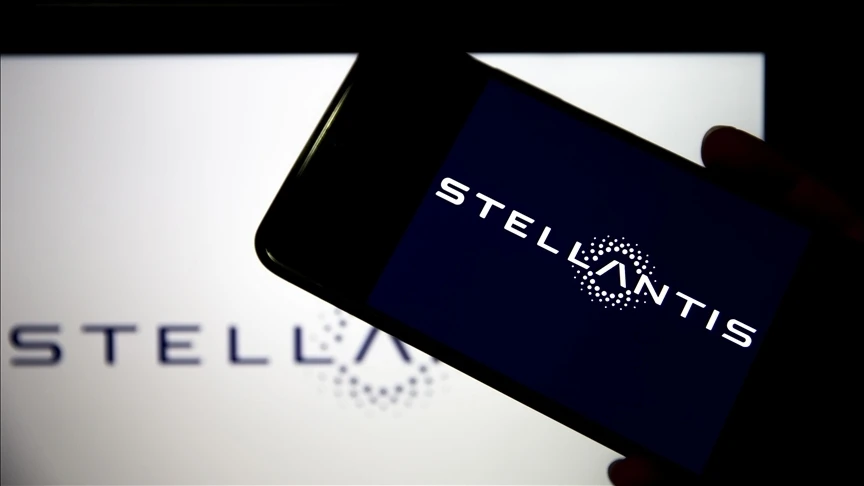Starbucks CEO exits amid fierce backlash over Gaza conflict
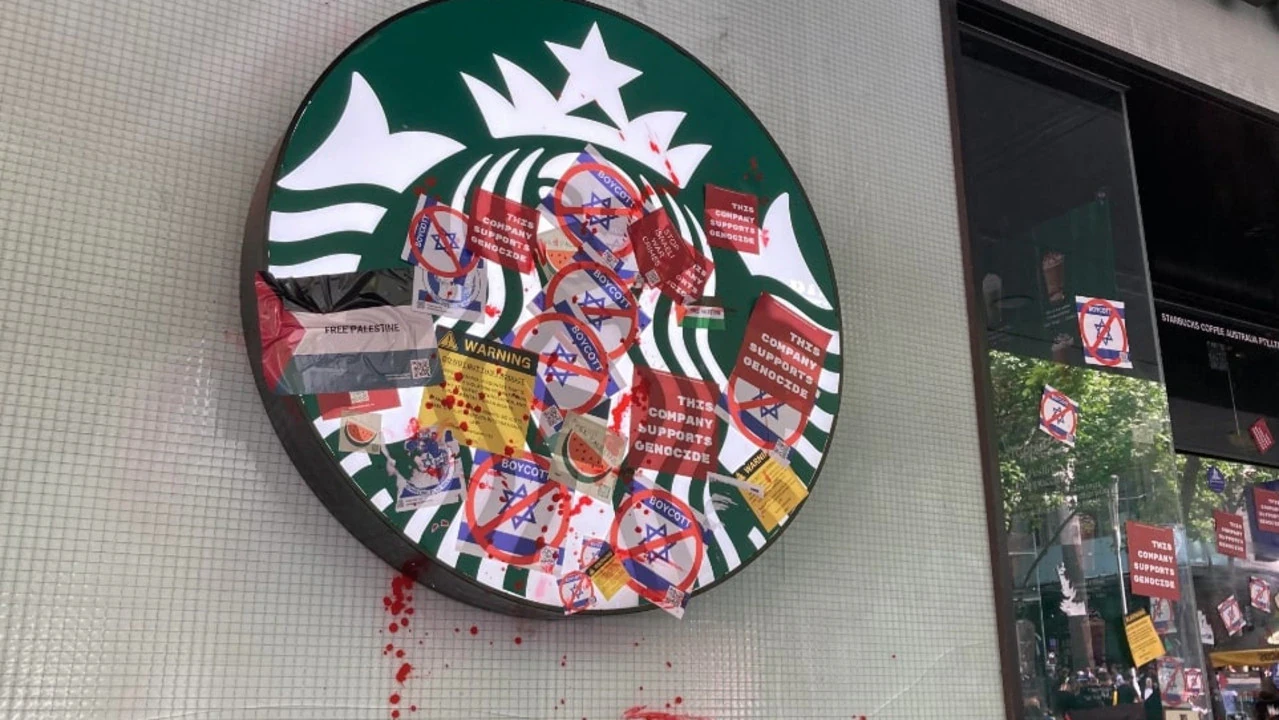 Images of the popular Starbucks store in Melbourne’s CBD showing the extent of the graffiti m(AP Photo)
Images of the popular Starbucks store in Melbourne’s CBD showing the extent of the graffiti m(AP Photo)
Starbucks has ousted CEO Laxman Narasimhan amid mounting pressure from a widespread boycott over the company’s perceived support for Israel during the Gaza conflict since Oct. 7, 2023.
The boycott, fueled by a controversial tweet from Starbucks Workers United and exacerbated by the company’s subsequent responses, has severely impacted the brand, both economically and socially.
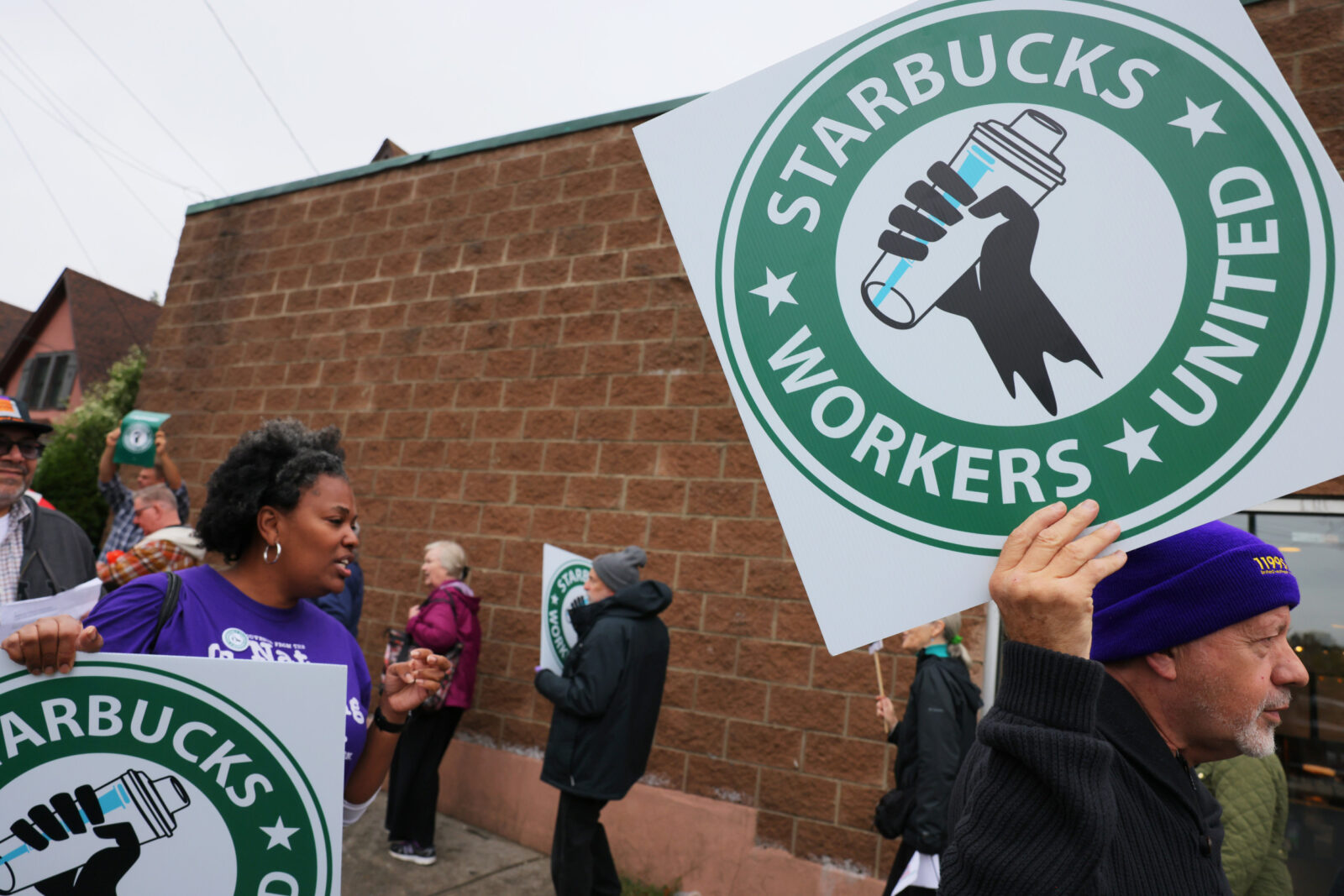
How did Starbucks boycott start?
The catalyst for Narasimhan’s dismissal was the company’s struggle to navigate a PR crisis that began with a message on X (formerly Twitter) by Starbucks Workers United in October 2023.
- Tweet fallout: The tipping point came when the Starbucks Workers United union posted a tweet expressing “Solidarity with Palestine.”The post triggered widespread outrage, especially among pro-Palestinian groups.
- Starbucks failed efforts: Starbucks immediately distanced itself, condemning the union’s statement and reiterating its neutrality. Starbucks has consistently denied any direct support for Israel or its military actions. The company issued several statements condemning violence and misinformation, trying to clarify its stance. The company’s subsequent attempts only intensified the backlash, culminating in a significant and prolonged boycott.
- CEO ousted: As the boycott gained traction, CEO Narasimhan was ousted, with Brian Niccol, former CEO of Chipotle, stepping in to lead the company through the crisis.
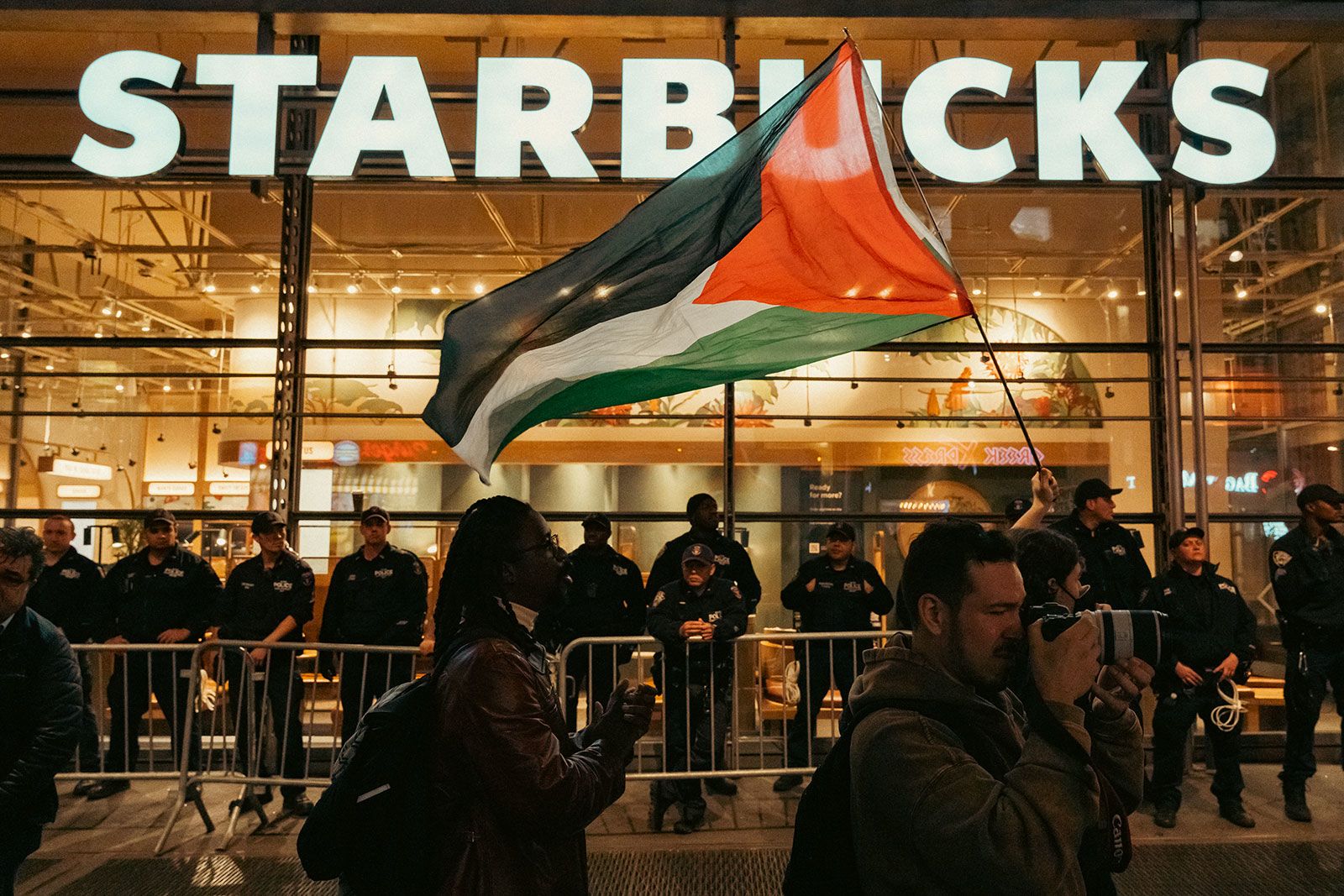
How much money did Starbucks lose?
Since the beginning of the Hamas-Israel war on Oct. 7, 2023, Starbucks has faced significant financial losses because of widespread boycotts.
- Sales decline: Starbucks reported its slowest sales growth in a year, with a 15% drop in net income, the worst performance since the pandemic’s peak. Global sales fell by 11%, particularly impacting key regions such as China, the Middle East and North America.
- Share price plunge: The company’s share price has plunged to a 21-month low, wiping out approximately $11-12 billion in market value. This has forced Starbucks to lower its fiscal year 2024 profit forecast, expecting continued weakness in cafe performance.
- Middle East, South Asia hit hard: The boycott has hit the Middle East and South Asia severely because of perceived ties to Israel. In March 2024, Starbucks’ Middle Eastern franchisee announced 2,000 layoffs in response to the sharp decline in sales caused by the boycott. Narasimhan stated during a recent earnings call that events in the Middle East had affected the company in the U.S., driven by “misperceptions about our position.”
Zoom in: On May 1, 2024, Starbucks announced Q2 2024 results well below expectations and Starbucks’ projections and then announced significantly reduced full-year guidance for 2024. Starbucks attributed it to “(h)eadwinds discussed last quarter” including the “impact of a more cautious consumer” which “may persist longer, but much is within our control.”
- Analysts reacting to the quarterly results and reduced guidance noted that the “magnitude of the revision was unsettling.” Following this news, Starbucks’ stock price fell by $14.05 per share to close at $74.44 per share.
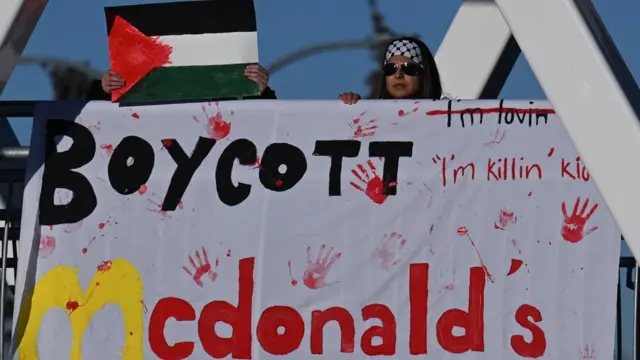
Why Starbucks was hit harder than others?
While several Western brands faced backlash over their perceived support for Israel, Starbucks was hit particularly hard.
- Long-term impact: A report from Bloomberg Intelligence noted that while the impact on McDonald’s sales was expected to be short-lived, Starbucks could feel the effects well into 2024. This is largely due to the dual pressures of the boycott and the ongoing labor disputes with its union, which have created a perfect storm of negative publicity and consumer backlash.
- Viral boycott: Social media campaigns, especially on platforms like TikTok and X, fueled the boycott, with the hashtag #BoycottStarbucks gaining widespread traction. Starbucks’ perceived association with Israel, based on Howard Schultz’s past support for Jewish causes, further aggravated the situation.
- Progressive brand vulnerability: Starbucks’ identity as a socially responsible brand made it more vulnerable to criticism, leading to a more severe backlash compared to other companies.
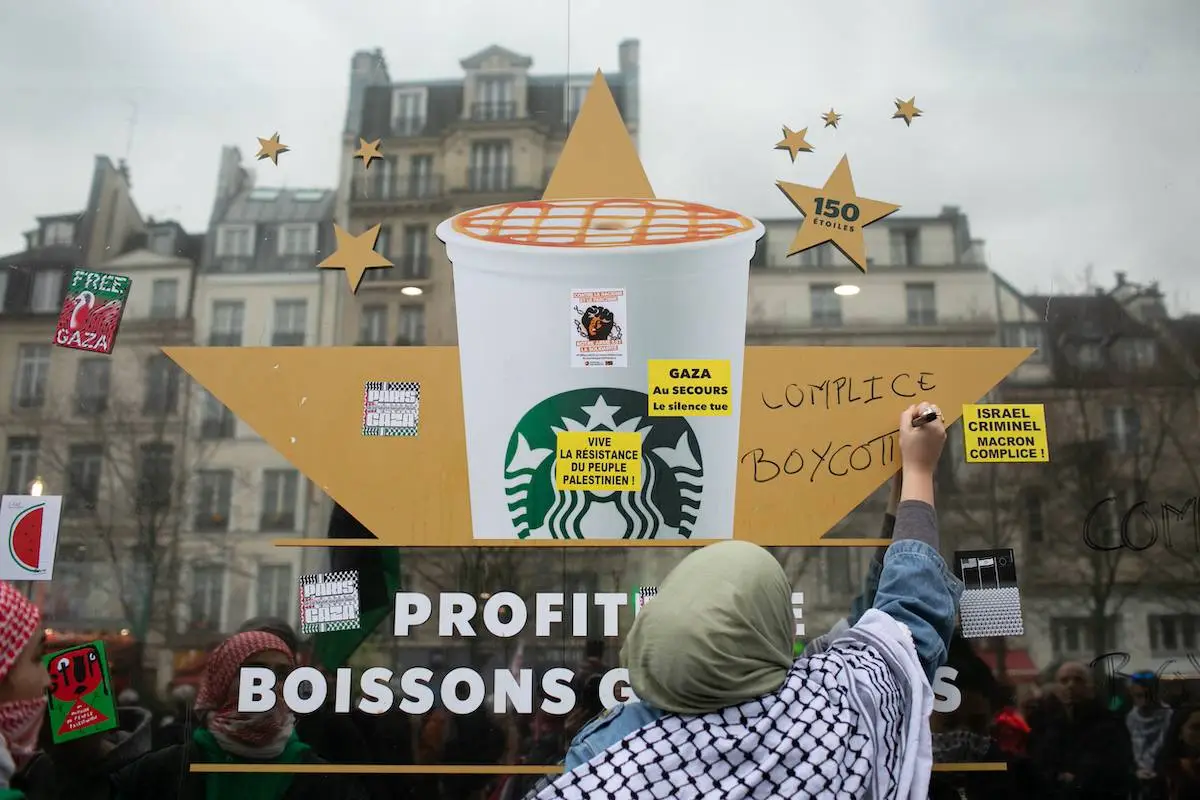
Gen Z factor in Starbucks boycott
- Consumer behavior: The Starbucks boycott is part of a broader generational shift in consumer behavior. Younger consumers, particularly Gen Z, are increasingly willing to take action against companies they perceive as being on the wrong side of social and political issues. Unlike previous generations, who might have limited their activism to online posts, today’s consumers are more likely to put their money where their mouth is, leading to tangible economic consequences for companies like Starbucks.
- Social media: This shift has been fueled by the fragmentation of the news ecosystem, with more consumers turning to social media for information. On platforms like TikTok and Instagram, misinformation and heated rhetoric can spread quickly, inflaming public sentiment and leading to swift boycotts.
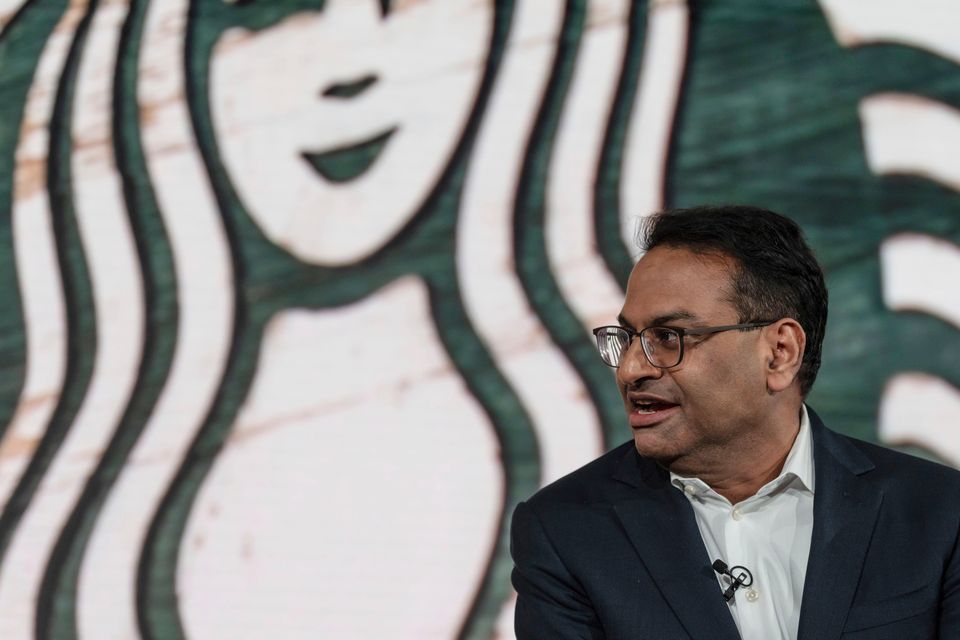
Starbucks’ new strategy: Leadership change
Amid these challenges, Starbucks announced the abrupt departure of CEO Laxman Narasimhan, who had been with the company for less than two years.
- Narasimhan’s tenure saw a decline in comparable sales and stock prices, exacerbated by the ongoing boycott. Activist investor Elliott Management and former CEO Howard Schultz publicly criticized Narasimhan’s strategy, leading to his ousting.
- He will be replaced by Brian Niccol, former CEO of Chipotle, who is known for turning around the fortunes of the Mexican fast-food chain.
- Niccol’s appointment was met with mixed reactions, with Starbucks’ share price rising by 24.5% and Chipotle’s falling by 7.5%.
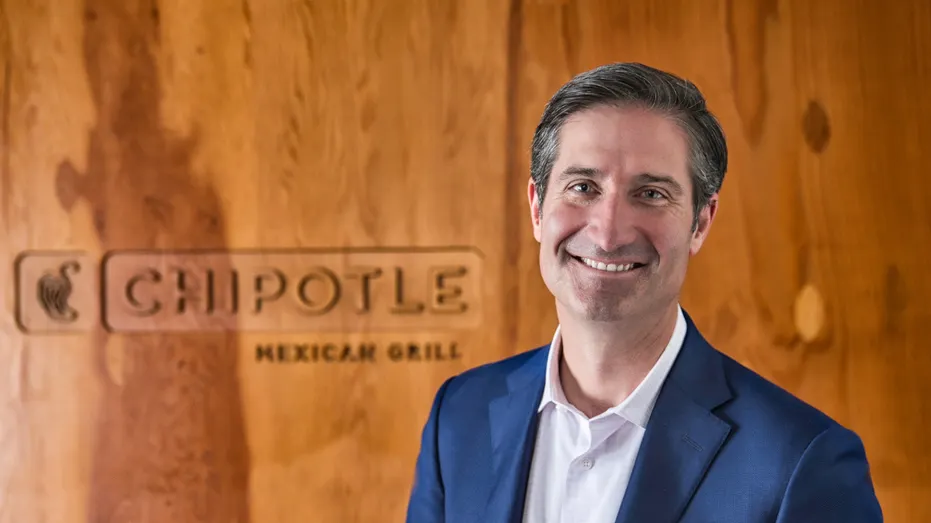
Starbucks is in damage control mode
With the appointment of Brian Niccol as the new CEO, Starbucks hopes to navigate these turbulent times.
Niccol, who is credited with turning around Chipotle by nearly doubling its revenue and increasing its stock price by 800%, is seen as a transformative leader who could help Starbucks regain its footing.
- Public image: However, he faces the task of addressing the company’s declining sales and repairing its public image.
- Labor relations: Niccol also faces the challenge of addressing ongoing labor disputes that have further complicated Starbucks’ situation.
